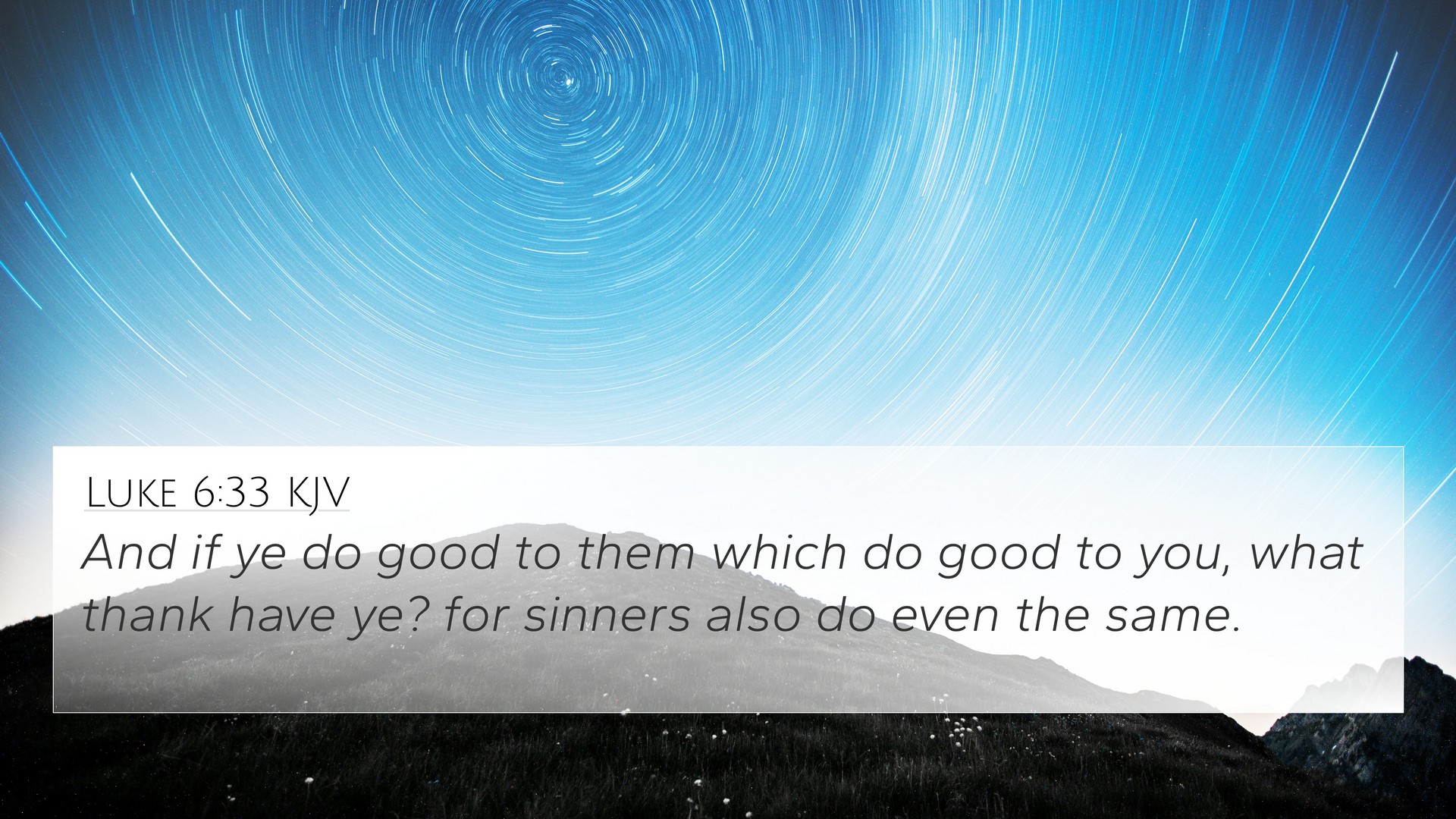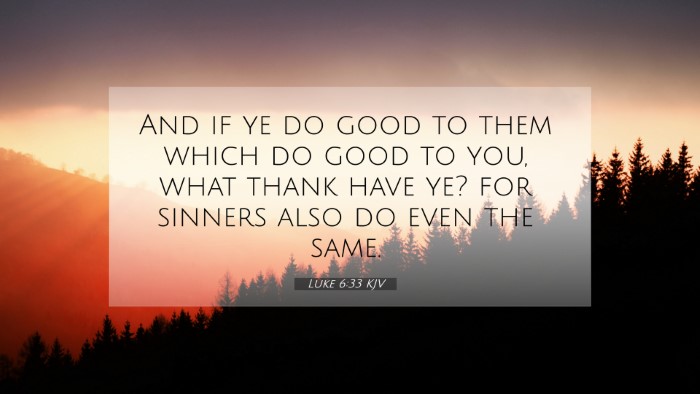Understanding Luke 6:33
Luke 6:33: "And if you do good to those who do good to you, what credit is that to you? For even sinners do the same."
Introduction to the Verse
This passage invites deep exploration into the nature of goodness and the expectations placed upon us as followers of Christ. It challenges believers to examine their motives and actions, urging a reflection on the depth of altruism and the call to love beyond mere reciprocity.
Commentary Insights
- Matthew Henry: He emphasizes that this verse illustrates how mere mutual kindness is no hallmark of true righteousness. It provokes believers to extend their goodness to those who cannot repay them, reflecting God's nature of unconditional love.
- Albert Barnes: He notes that Jesus is setting a standard that transcends normal social behaviors. The goodness that Christ expects is not bound by human standards of exchange but is grounded in boundless love and grace.
- Adam Clarke: Clarke highlights the ethical dimensions of the teaching, suggesting that the moral quality of our actions should not be determined by their reciprocal nature but rather by their alignment with divine principles.
Main Themes
This verse unfolds several significant themes relevant for theological reflection:
- The Nature of True Goodness: True goodness exceeds the natural inclination to reciprocate; it challenges the believer to act with selfless intention.
- The Expectation of the Believer: Followers of Christ are called to a higher standard that mirrors divine love, compelling them to bekind even to the unthankful.
- Grace and Mercy: Highlighting God's character, this verse serves as an invitation to embody grace and mercy in our interactions.
Cross-References
To deepen the understanding, consider the following cross-references:
- Matthew 5:46: "For if you love those who love you, what reward do you have? Do not even the tax collectors do the same?"
- Romans 12:20: "To the contrary, if your enemy is hungry, feed him; if he is thirsty, give him something to drink..."
- Galatians 6:10: "So then, as we have opportunity, let us do good to everyone..."
- Luke 14:12-14: "When you give a dinner or a banquet, do not invite your friends or your brothers or your relatives or rich neighbors..."
- James 2:15-16: "If a brother or sister is poorly clothed and lacking in daily food, and one of you says to them, 'Go in peace, be warmed and filled,' without giving them the things needed for the body..."
- 1 John 4:7: "Beloved, let us love one another, for love is from God, and whoever loves has been born of God and knows God."
- Luke 6:31: "And as you wish that others would do to you, do so to them."
Applying the Verse
The call to goodness without expectation compels believers to reassess their actions. In a world often defined by transactional relationships, the teachings of Luke 6:33 push towards a transformative love that mirrors God's unconditionality.
Practical Application
- Self-Reflection: Regularly evaluate your motives in relationships and actions, striving for selfless interactions.
- Embrace Uncial Kindness: Seek opportunities to show kindness to those who cannot repay you, like strangers or those in need.
- Incorporate Prayer: Ask for God's strength to love even those who oppose you, embodying Christ's love in difficult relationships.
Conclusion
In summary, Luke 6:33 challenges believers to reflect the selfless nature of God through their actions. By extending goodness beyond what is simply reciprocated, Christians embody the transformative power of divine love, engaging in a deeper, more meaningful expression of faith.
Further Study
For those interested in exploring the connections between Bible verses, utilizing tools for Bible cross-referencing such as concordances can provide insights. Such study can facilitate a deeper understanding of the interconnectedness of scriptural themes, enriching one’s theological journey.


